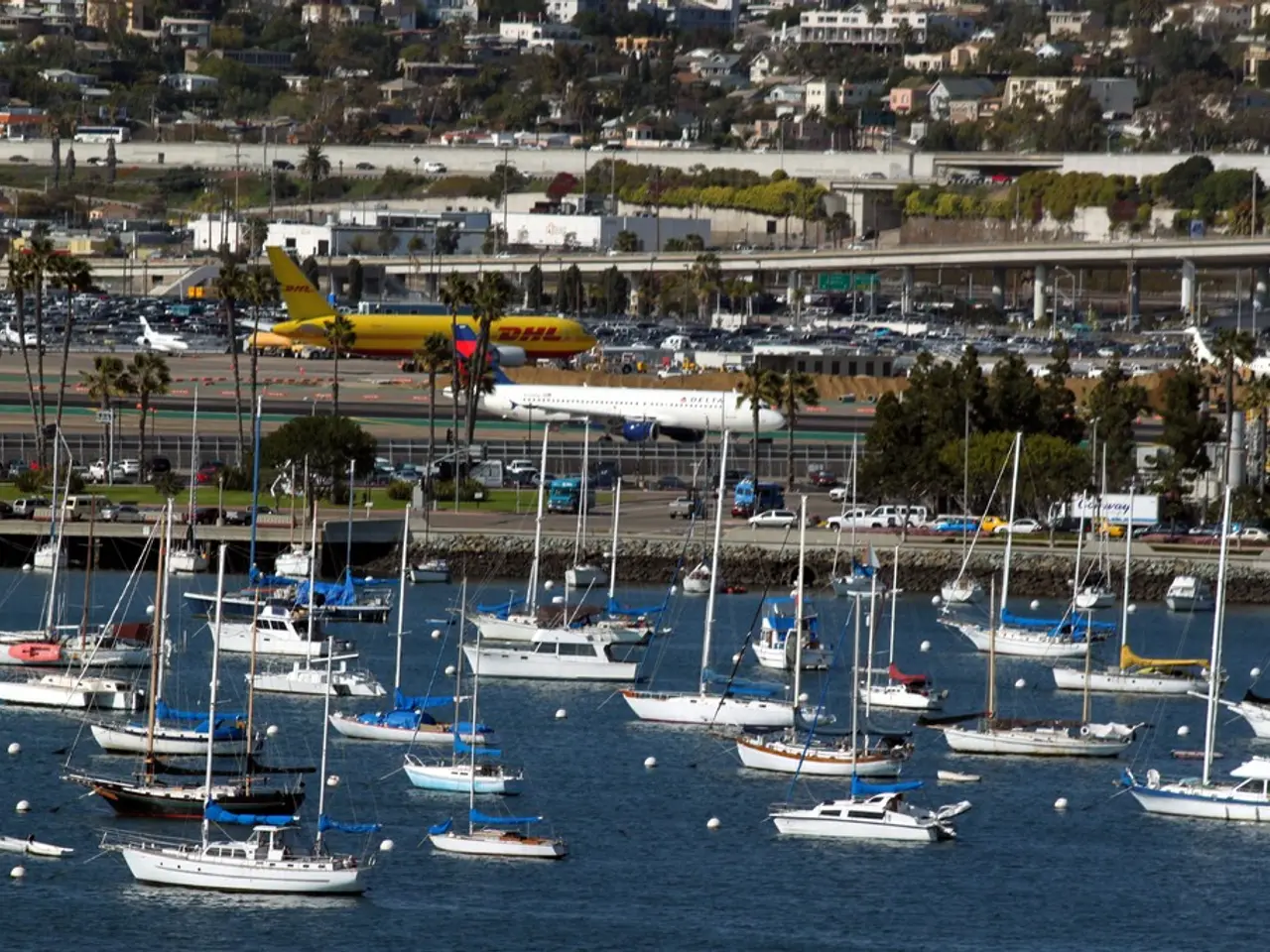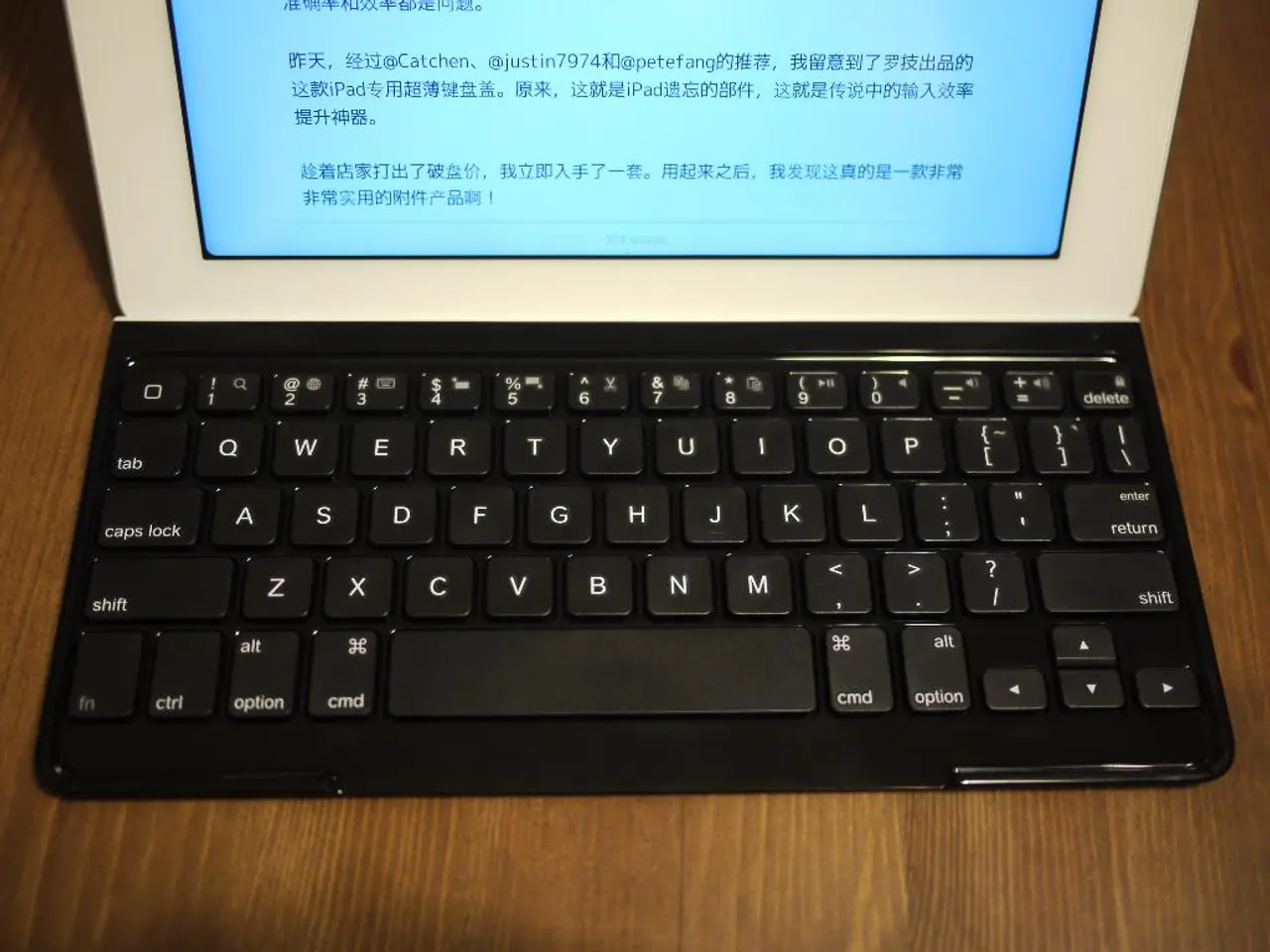"World trade reshaping indicates favorable prospects for Gulf Cooperation Council's naval resources"
The Gulf Cooperation Council (GCC), with Oman's Port of Duqm at its forefront, is rapidly establishing itself as a significant global trading hub. This transformation is driven by a combination of geographic advantages, robust infrastructure, political stability, strategic partnerships, and a focus on economic diversification.
**Geographic Advantage and Connectivity**
The GCC's strategic location between Asia, Africa, and Europe offers one of the world's most important chokepoints for maritime trade. With proximity to one-third of the global population within four hours' flight, companies can benefit from direct sea and air links to large markets in East Africa and Asia, lowering fuel and logistics costs and enhancing supply chain flexibility. The Port of Duqm, situated outside the congested Strait of Hormuz, serves as a gateway linking the Indian Ocean trade routes directly with East Africa and South Asia, fostering faster and more cost-efficient transshipment and re-export services.
**Investment in Infrastructure and Economic Diversification**
The Port of Duqm is a key component of Oman's broader strategy to diversify its economy away from oil dependence. Massive investments have created a state-of-the-art deep-sea port, dry dock, and industrial zones, transforming Duqm into a multi-use economic hub. Enhanced transport networks and free trade zones attract investors and companies seeking stable, efficient platforms for international trade and industrial activities.
**Political Stability and Strategic Partnerships**
The GCC, and Oman in particular, offers a politically stable environment, which is attractive for global trade and investment in a tumultuous region. The GCC countries have cultivated strong bilateral and multilateral trade agreements and alliances, such as free trade pacts covering a significant portion of the global GDP, which facilitate frictionless trade and increased market access. Gulf states also actively foster economic and diplomatic ties with Africa through high-level summits and cooperation forums that strengthen trade corridors, investment channels, and supply chains from Africa through the Gulf.
**Resilience Amid Regional and Global Uncertainties**
Despite regional tensions, such as the Israel-Iran conflict impacting security and logistics in the Gulf, the GCC economies are showing resilience. They maintain economic growth forecasts and continue attracting foreign direct investment by leveraging their logistical advantages and diversified non-oil sectors like logistics and manufacturing.
In summary, the Port of Duqm—and the wider GCC—has emerged as a pivotal global trading hub, bridging three continents and serving as a resilient, diversified platform for international commerce and investment. With the aim to increase production to reach a million tonnes of green hydrogen by 2030, the Port of Duqm is poised to play an even more significant role in the global energy transition.
References: [1] "Gulf of Duqm: Oman's New Maritime Gateway," Oxford Business Group, 2020. [2] "Oman's Duqm Port: A Strategic Hub for Global Trade," Arabian Business, 2021. [3] "GCC Economies Show Resilience Amid Regional and Global Uncertainties," Arab News, 2021. [4] "The GCC: A New Fulcrum for Global Commerce," Gulf News, 2021.
- Oman's Port of Duqm, a crucial element of the GCC's economic diversification strategy, connects Asia, Africa, and Europe, offering vital trading routes and reducing logistics costs for businesses.
- The political stability within the GCC, particularly in Oman, attracts global trade and investment opportunities, fostering strong partnerships and alliances with neighboring countries.
- The GCC countries have investments in energy transition technologies, aiming to produce one million tonnes of green hydrogen by 2030, positioning the Port of Duqm as a significant player in the global energy market.
- The world of finance and business community watch the growth of the GCC with interest, as the region's resilience amid regional and global uncertainties indicates an attractive investment environment.
- In the realm of technology, the strategic location of the GCC provides businesses with a competitive advantage, offering direct sea and air links to major markets in East Africa and Asia.
- Despite the Israel-Iran conflict, the GCC economies maintain a focus on economic growth and continue to attract foreign investment, highlighting their adaptability and determination in their quest to become a leading global trading hub.




